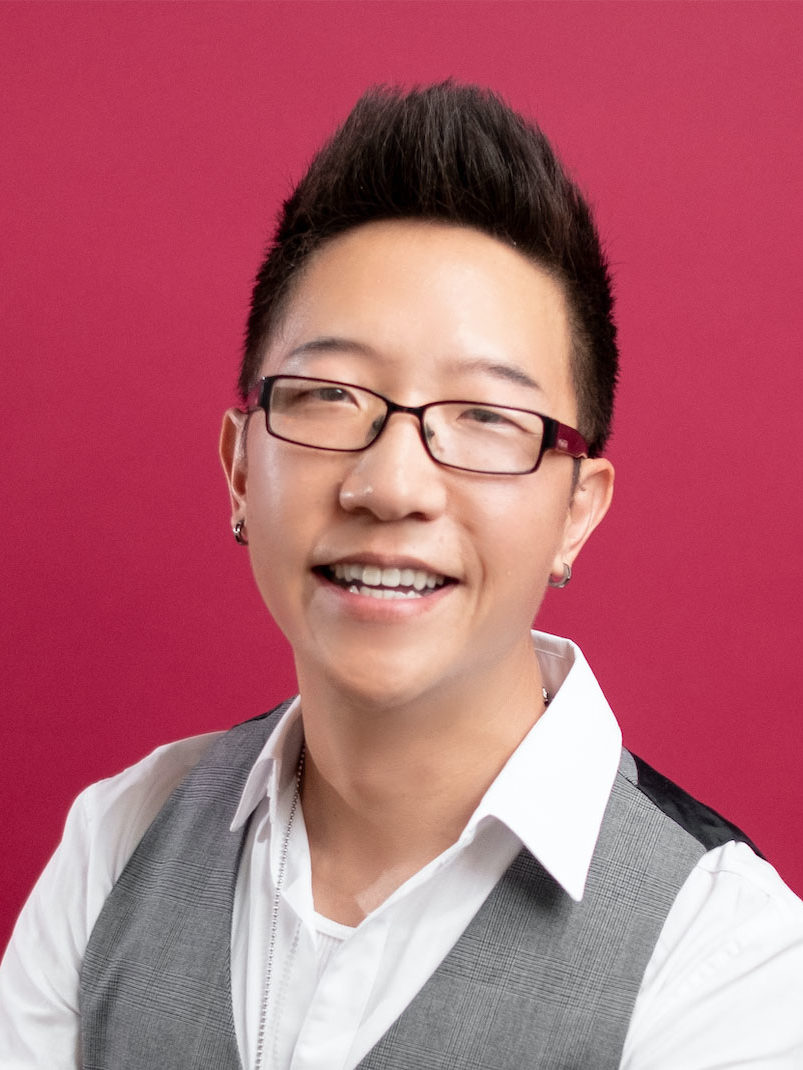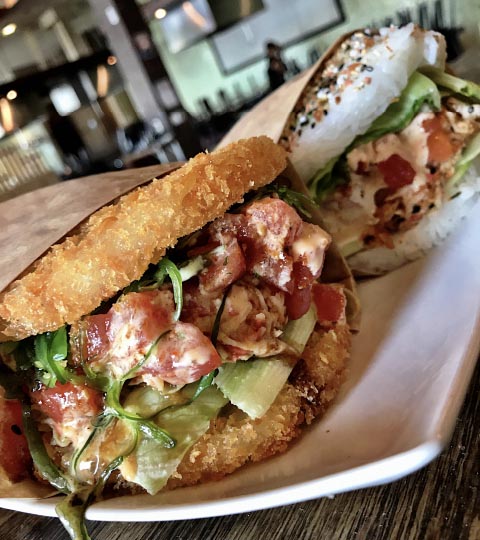
Paul Ryu: A Comeback Story
“Oh man, I don’t know why I get so nervous for these things, but I do,” says Paul Ryu as he settles into our zoom call. Paul is a Las Vegas food influencer, who not only is a passionate foodie but is passionate about helping the Asian community.

“Sometimes I wonder why I get picked for these kinds of articles, but let me tell you, my story about coming to America is crazy. I mean there’s drugs, possible deportation, and of course my success story, it’s insane.”
Paul prefers face-to-face interaction, which is why he had his own personalized zoom link sent to me within seconds after we nailed down an interview time. Make no mistake, Paul Ryu is not the easiest to schedule. His business JMPforce has taken off in recent years and is growing by the day.
Paul was born and partially raised in Korea. He came to the U.S. in his early teenage years. During Asian American and Pacific Islander heritage month, we wanted to talk with him about his transition as a business owner in America and how he works to help the Asian community find success.
Let’s start with your background…what age did you move to the United States?
Well, I was born in Korea in 1975. Back then, military service was mandatory in South Korea and so parents were actively working to get their kids out and to the United States. Because of that, the interview process really ramped up at the embassy. I was thirteen when I took the interview to come to America, but my mom was super smart and strategic about getting me to pass. Before my interview, she told me I was going to go to Disneyland. For a kid that was like…the most amazing thing. I had complete excitement and zero stress when I passed the interview.
When I passed though, my mom told me the truth. She said, “You’re going, we aren’t going, and you are not coming back.”
What were you feeling at the time? I’m sure it was a lot to process.
Well, I really trusted the process. I was a very disciplined kid and was independent. I had just finished 6th grade and was sent to Santa Barbara, California where I lived in the dorms. There were no Koreans there and I did not speak English. The only thing I knew how to say was “Hi, my name is Paul.”
I just knew that I had to keep trying. I didn’t have a choice.
Did you have anyone helping you along the way?
Not long after I moved to Santa Barbara, my parents bought a home in San Diego. The plan was that my 21-year-old sister would move to San Diego, and we would live in the house, but her paperwork got delayed so I was a 14-year-old living in a house all by myself. Can you believe that?!
I threw the biggest party ever at my house with zero adults. I was instantly accepted by the cool kids. I am sure they saw a lot of opportunity with me in terms of access to partying, but I was really able to connect with them. It’s what I’m good at. They also took pride in taking a Korean kid under their wing and teaching me everything they could. Honestly, though, connection is really my thing. I really believe in relationships, and I recognized my power to connect early on. More importantly, people stepped up to help me and it is something I have never ever forgotten.
Did you manage to graduate with all that partying?
I did. I got accepted into UC Santa Barbara, but quickly fell into partying mode. I got kicked out of my dorm on the second day of living there. I eventually ended up at UNLV in Las Vegas, but never finished school.
As an Asian immigrant, you bring culture stigma with you. There is this belief that you are going to send your kids to the U.S., and they are going to become a doctor, get married, and then go back to Korea to live. Obviously, my parents got the complete opposite in me.
College was not my thing, but like I said, I was good at connection, so I went into sales. I was killing it! It was through sales that I met the nightlife crowd and well, life just went down the wrong path. I started using drugs to party all night and work all day. I needed a substance to perform and that is when you know you are going downhill. I got into trouble with the law repeatedly and got down to 117 pounds due to a meth addiction. I remember looking at myself in the mirror one day and thinking, “I think I’m going to die.”
I was sent to a halfway house, and it was there I realized I needed to change. I got clean, had to serve 3 years of community service, and start over.
When did you decide to try to become an influencer?
Food influencing was something I just fell into. I love food. I started taking pictures and posting them on Facebook and eventually the app Foodspotting before Instagram. I was one of the top 50 in the world on this app and I was creating some results for restaurants. I also held one of the first-ever food meetups in Las Vegas.

Restaurant owners started seeking me out for help. I got a lot of requests from Asian restaurant owners. In fact, I worked with one Asian restaurant who wanted me to get their name out there. To measure my reach as a marketer, our team created a sushi burger that was not on the menu, but I posted on Instagram. We knew if people came in asking for it, they saw it on the app.
You will not believe how popular this post was! People were lined up out the door to get into the restaurant. We were featured in Thrillist and that’s really when more Asian restaurants started asking me to help.
But it quickly became a matter of scalability. I had so many restaurants wanting my help, I quickly realized there was a business somewhere in this. I had to figure it out.
My partner Jeremy, my wife Mindi, and I started JMPforce in October 2018. What I do is hire influencers who best match what a client needs and let them content create for that business, but it’s not just one person…it’s a taskforce that goes out and figures out how to best create.
What’s great about my business is that those who work with me are passionate about what they do. It’s not just about the money, it’s about truly having a passion in their industry. That passion can be seen in the content influencers create.
How does your business specifically help the AAPI community?
A lot of Asian businesses seek out my help because I speak Korean. I can communicate with them, and they trust me to understand their needs. I take pride in helping them because I can get them into the scene. They barely speak English. When I take on Asian clients, I get to help them maneuver more easily.
What do you think the secret to your success is?
True relationships! My life has been built on the relationships I have with people. Through the good and bad, my relationships and connections have gotten me through and it’s something I value immensely. Listen, I almost got deported a couple of years ago. There was a mistake in the system, and someone showed up on my doorstep and said we are deporting you right now.
I had worked so hard to build my life back up and now, in a second, it was going to be gone.

Well, those relationships that I built through the years kicked into high gear. During my immigration hearing, I managed to pack the courtroom with people who came to support me and speak on my behalf. That is not normal for an immigration hearing. Usually, immigrants are here alone and have nobody to speak up for them. I did. The courtroom was packed with people and a judge allowed me to stay. I am 47 years old, have a wife, two kids, and all sorts of friendships. It is crazy to think I came to this country at 13 all alone. I just received my citizenship in January 2022. It was quite the journey.
Do you have any advice for the AAPI community?
I was able to break through the stigma and break into American culture. I think more Asians need to value that. We need to stop being so cliquey. I don’t think people understand what it’s like in other countries. In America, you get to voice your opinions all over social media. You don’t get to do that in other countries. I really think that the AAPI community should try to immerse themselves in American culture. It’s important to support each other and our community, but I have gained so many relationships by branching out of my comfort zone.
As a new citizen, I just feel like I’m ready to go crush it.
High-interest loans can be expensive and should be used for short-term financial needs only, not as long-term solutions. Customers with credit difficulties should seek credit counseling. Cash Factory USA does not provide financial advice. Visit cashfactoryusa.com for rates and terms. 101 Convention Center Dr., Las Vegas, NV 89109.
Image(s) or Footage (as applicable), used under license from Shutterstock.com.